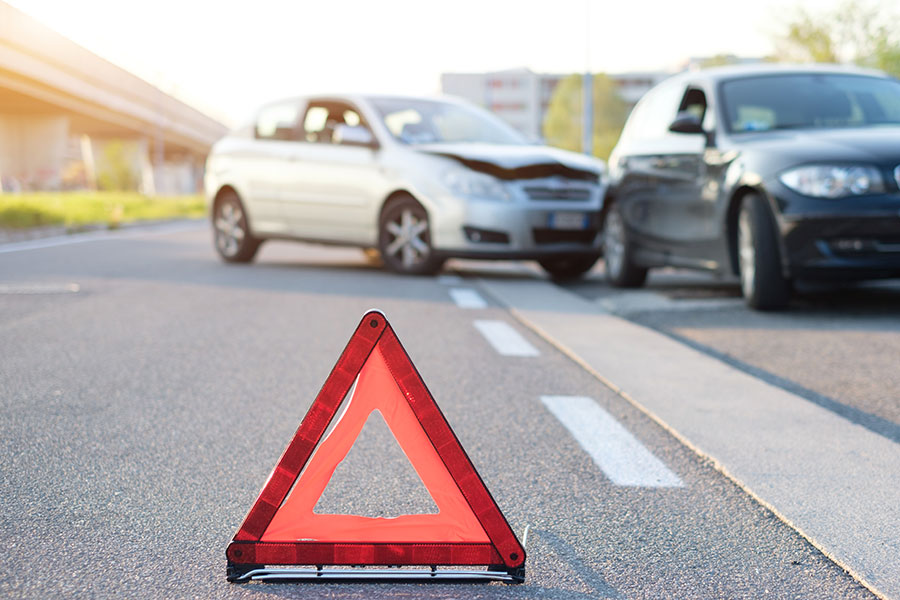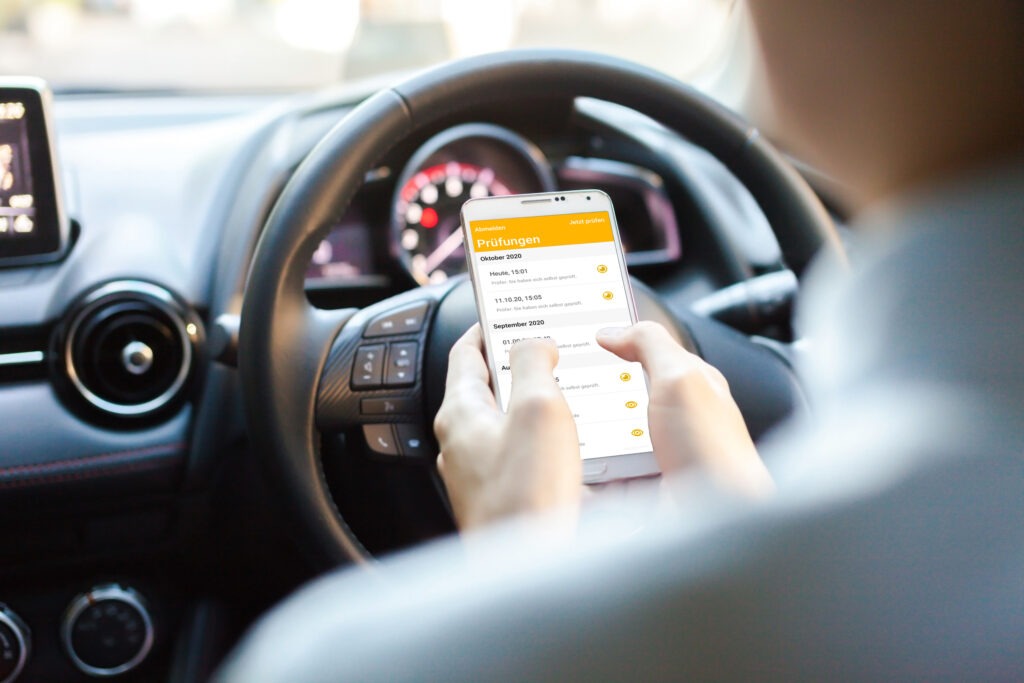The subject of owner’s liability in the vehicle fleet can quickly become an explosive matter for fleet managers, managing directors or board members. Because anyone who only fulfills their duties irregularly or not at all must expect severe penalties. In order to protect yourself from legal consequences, you should therefore be fully aware of the most important laws, obligations and requirements relating to owner’s liability in the vehicle fleet. In our article, you will receive a comprehensive overview of the tasks that fleet managers must perform in connection with keeper liability in order to make your fleet even safer and legally correct.
What exactly is the keeper liability in the fleet and who is the keeper?
The owner’s liability in the vehicle fleet states that the vehicle owner can be held liable for any damage caused, regardless of his fault. But who is the holder in case of liability? A ruling by the Cologne Higher Regional Court of 08. 10.1993 states:
The Cologne Higher Regional Court defines the owner, or vehicle keeper, as the person who uses the vehicle on his own account and in his own interest not only temporarily and has control over it. has control over it.
Relief and Responsibility: The Delegation of Keeper Liability in Fleet Management
Delegation of keeper liability refers to the transfer of responsibility for liability to another person or organization. From a purely legal point of view, the management or the board of directors is considered to be the owner of a vehicle, even if they do not use the car themselves. Usually, the keeper’s liability – and the associated duties – are transferred to a person of suitable character and expertise. This is usually the fleet manager. The latter is thus responsible, among other things, for the regular driver’s license checks of the employees, the proper UVV driver instruction and the UVV inspection of the vehicles.
It is important to note that the delegation of keeper liability does not mean that the company neglects its obligations and duties regarding compliance with legal regulations and safety measures. The company still has the duty of control and supervision and must ensure that the work of the fleet manager is regularly reviewed.

Transfer of the holder's duties: These requirements must be met
The delegation of the keeper’s liability must in any case be made in writing and expressly. To minimize potential legal and financial risks, companies should always ensure that they have clear agreements in place and adequately address all relevant aspects of keeper liability and its delegation. There are a few legal pitfalls lurking in the process. If certain points do not apply, there is a so-called organizational fault and in the end the management is liable after all.
- Written contract: In order to clearly regulate the delegation of keeper liability in fleet management, it is advisable to record this in writing. This is best done either in the employment contract of the fleet manager or through a separate contract.
- Unambiguous wording: This document should clearly articulate all required roles and responsibilities.
- Personal suitability: it is important that the person to whom the keeper’s liability is transferred has the necessary qualities and skills consistent with the tasks.
- Automatic delegation: Automatic delegation may only occur if the person concerned has been carrying out these tasks for more than five years or is suitable for them due to their professional qualifications.
Legal obligations of the fleet management regarding the owner's liability in the vehicle fleet
In connection with the owner’s liability in the fleet, the fleet manager has to fulfill various obligations to ensure compliance with the law and safety in the fleet. These include:
Driver’s license check
- Only employees with a valid driver’s license may drive company vehicles.
- Driver’s license checks should be performed at least semi-annually by the fleet manager.
Driver training according to UVV
- Employees should be trained in the safe handling of the vehicle and in how to behave in the event of an accident as part of UVV driver training.
- This instruction and control by a test must be carried out at least once a year
UVV inspection of the vehicles
- The aim is to ensure the safety of the company vehicles, so an inspection for possible damage or defects is carried out.
- This inspection should be performed by a competent person to ensure proper evaluation of each vehicle.

Are you still checking or are you already managing? More time thanks to digital holder liability (in german)
What happens if you, as the fleet manager, do not fulfill your keeper liability obligations?
Compliance with keeper liability obligations is of paramount importance, as the safety of human life is always at stake. The legislator therefore intervenes rigorously if the owner’s liability is neglected or disregarded by the fleet management.
A typical example is when a company car driver became conspicuous due to drunk driving and his driver’s license is revoked. As the fleet manager, it is then your responsibility to prohibit the use of the company car until a valid driver’s license is obtained again. Similarly, if a driver is unfit to drive due to an illness and related medication. In addition, failure to identify and remedy vehicle defects in a timely manner may also be considered a breach of the keeper’s liability obligations.
The penalties for the keeper resulting from the failure to comply with these obligations are both criminal and civil in nature and may entail significant financial implications of several thousand euros. Fleet managers who allow company vehicles to be driven without a valid driver’s license risk imprisonment or a fine under Section 21 of the StVG.
It is therefore of utmost importance that you, as the person responsible for the fleet, fulfill your keeper obligations conscientiously in order to avoid possible consequences. All results must also be documented in a complete and comprehensible manner so that you can provide appropriate proof in the event of a claim.

Software solutions support fleet managers in complying with owner's liability obligations
The use of software solutions in fleet management has become indispensable. As a digital assistant, the fleet software provides valuable support to fleet managers in complying with keeper liability obligations in the fleet. With appropriate apps and desktop applications, compliance with laws and regulations is made easy. Use these capabilities to both comply with legal requirements and improve the safety and efficiency of your fleet.
Driver’s license verification
One component of such digital solutions is the electronic driver’s license check. It offers both the fleet manager and the company car driver a variety of advantages. On the one hand, it ensures legal certainty in documentation for the fleet manager. On the other hand, it provides a control authority for the driver and also saves time as it can be done quickly and easily from anywhere. In short, it promotes safety and efficiency on both sides.
UVV driver training as an e-learning course
Another important measure is the UVV driver training as an e-learning course. This flexible form of instruction allows drivers to be trained regardless of time and location. This saves fleet managers a lot of time and effort, as the content is already fully developed and always kept up to date. The time-consuming organization of appointments is also completely eliminated.
Appointment reminder and documentation for UVV inspection
Regular UVV testing of vehicles is also a crucial component of owner liability. Careful inspection can identify and document potential defects and damage. This way, as the person responsible for the fleet, you always have an overview of upcoming deadlines and have complete documentation at your fingertips.

Digital Driver's license verification
With Carano’s digital driver’s license check, drivers conveniently check their licenses on the go. Email notifications remind you of upcoming and overdue appointments.







